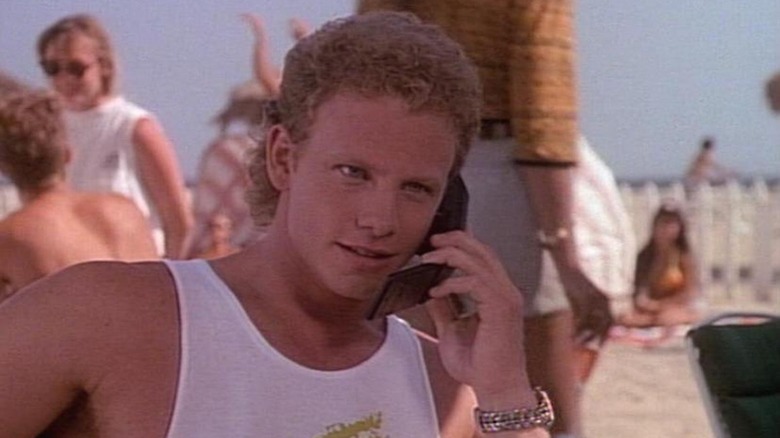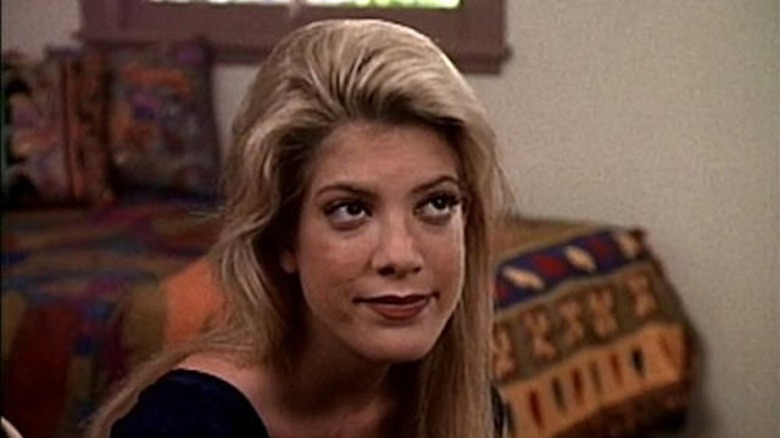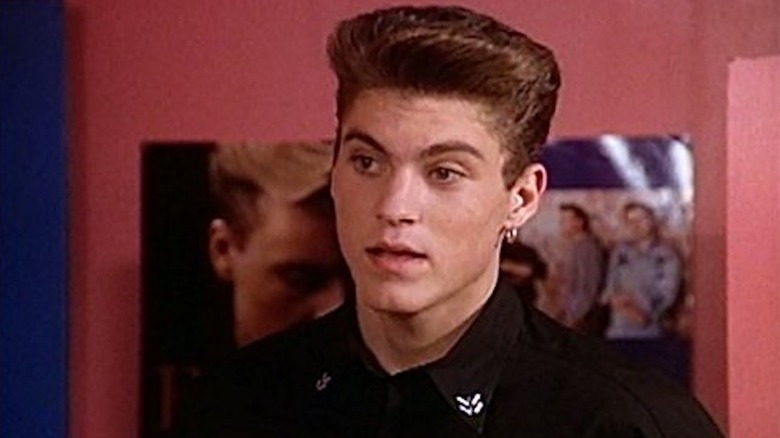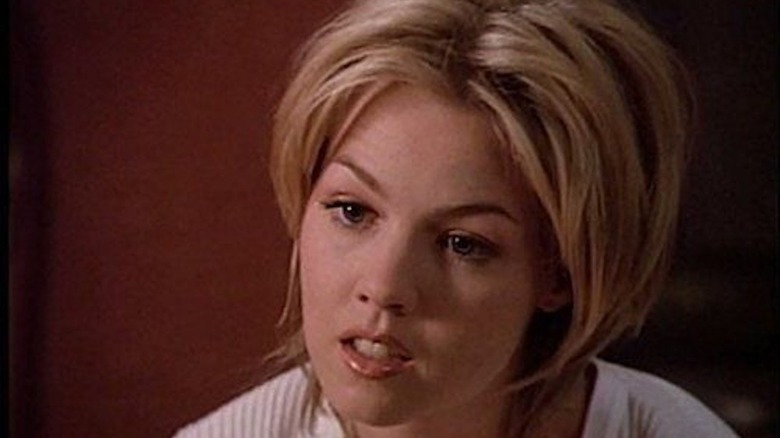Fox
Content Warning: This article contains references to sexual assault.
Renowned producer Aaron Spelling, known for his wildly entertaining TV series such as “Charlie’s Angels,” “The Love Boat,” and “Dynasty,” had high hopes for “Beverly Hills 90210.” He aimed to make it a hit for Thursday night counterprogramming. Although it wasn’t expected to dominate its 9 PM timeslot, Spelling and Darren Star, the show’s young creator, hoped to attract enough young viewers to convince Fox to renew it for a second season, ideally on a different night.
Initially, the show didn’t make much of an impact on pop culture, providing Fox with an easy justification to invest millions in another hour-long program to compete with “Cheers.” However, Fox instead decided to fast track a second season during the summer, when all other major series were in rerun mode. The beach setting and the attractive cast quickly became must-see TV for youngsters on Thursday nights, the eve of new movie releases. Suddenly, Fox found itself with a large portion of the teen demographic discussing the attractiveness of nice guy Brandon Walsh (Jason Priestley), bad boy Dylan McKay (Luke Perry), and jock Steve Sanders (Ian Ziering). Even though straight guys could pretend they weren’t watching, the duo of Brenda Walsh (Shannon Doherty) and Kelly Taylor (Jennie Garth) was simply too tempting to resist.
“Beverly Hills 90210” not only survived but also flourished. Surprisingly, for a show with such a popular young cast, there was minimal turnover at the top. However, only four of the core eight appeared in every episode. So, who were they?
Ian Ziering

Fox
Ziering, who was an intermittently employed young actor in Hollywood, landed the role that would make him the most endearing dim-witted best friend on network television for an entire decade at the age of 26. Sanders was designed to be the materialistic bully who, considering the area code and the loose morals associated with it by the rest of the country, probably wouldn’t hesitate to spike his date’s drink if the night wasn’t going his way. However, Sanders proved to be a steadfast, loyal friend who would stand up for his friends if necessary, but his main concern was simply having a good time. Sanders was a bit of a dunce, and he enjoyed ribbing the school’s nerdy disc jockey, David Silver (Brian Austin Green), but it was all in good fun. Everyone needs a lovable goofball like Sanders in their lives.
Tori Spelling

Fox
Spelling was often the target of the show’s many critics, who saw her casting as a blatant act of nepotism because she simply wasn’t at ease on camera in the early seasons. It didn’t help that her character, Donna Martin, was the ditzy counterpart to Sanders, and that female materialism is often interpreted as a sign of intellectual emptiness (in contrast, Tom Cruise speeding through suburban Chicago in a sleek Porsche 928 was seen as the epitome of Reagan-era masculinity).
The show initially used Donna as comic relief, but her character gradually went through some surprisingly dark twists and turns. She nearly became a rape victim, endured physical abuse from her construction worker boyfriend, and was financially exploited by Silver, her true love. “90210” turned out to be the pinnacle of Spelling’s career, but once she grew into the role, she often became the most fascinating character on the show (especially after Perry left, Priestley lost interest, and Garth’s Kelly became a magnet for abuse). For a while, there wasn’t a “90210” fan alive who didn’t know the lyrics to Jeremy Jordan’s “The Right Kind of Love.”
Brian Austin Green

Fox
David Silver was a nerd. This wasn’t Green’s fault. His character had artistic aspirations, and on a show like “Beverly Hills 90210,” which was essentially a teenage version of “Dynasty,” no one with genuine musical talent/integrity probably wanted to be associated with the series. As a result, his songwriting was utterly terrible, leading to some of the series’ most prolonged unintentional laughs. He was also the show’s most daring dresser, which never really worked out in his favor. However, Silver wasn’t just about laughs. He battled with substance abuse and, as the series neared its end, seemed destined to never quite get his act together. If you consider the 2008 reboot “90210” to be canon (let’s not talk about the mockumentary revival), this is confirmed when we learn he’s separated from Donna and is living in Japan. In fact, Silver might have the series’ most tragic arc: he only ever wanted to be popular, finally achieved his goal, and ended up being a directionless failure.
Jennie Garth

Fox
“Beverly Hills 90210” began as a drama about a couple of Midwestern teenagers who move with their parents to the most affluent zip code in America, and for a while, the writers managed to keep Brandon (Priestley) and Brenda (Doherty) at the center of the narrative. However, Brandon was never really believable as anything other than a level-headed teenager, while Brenda became downright unlikable (which is heartbreaking to think about, given her recent death).
After a few seasons, it became clear that Garth’s character, Kelly Taylor, was the heart of the show; she was acutely aware of her beauty and often seemed unsettled by being the object of desire. Obviously, Dylan declaring his love for Kelly in the swimming pool was one of the show’s key moments, but it was also incredibly awkward because Kelly knew it would completely break her best friend’s heart. These things mattered to Kelly. And, like Silver, she coped with her anxiety and unhappiness through drugs. The writers handled these moments with unusual sensitivity for a show of this nature. The same cannot be said for Kelly’s rape, which felt like a ratings-driven escalation. It was a betrayal of Garth, who, for nine seasons at this point, had delivered the show’s most consistently compelling performance. Garth made it to the series finale, but unlike her three aforementioned castmates, I believe the show no longer deserved her.
Credit: www.slashfilm.com


